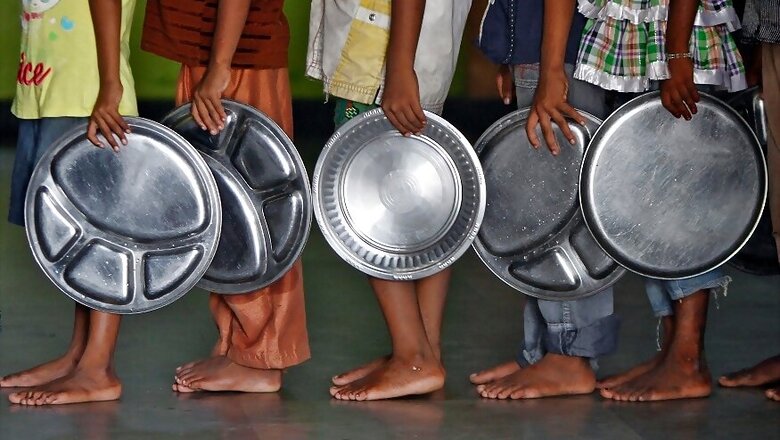
views
The United Nations warned Friday that its humanitarian logistics flights could be largely grounded in July due to a lack of funds -- severely compromising global aid operations.
The World Food Programme (WFP), which runs the flight network, said that only $178 million (159 million euros) of the $965 million common services budget needed to operate the service throughout 2020 had so far been advanced or confirmed by donors.
"Unless a substantial injection of funds is provided by donors by the end of the first week of July, WFP will have no choice but to ground most of its humanitarian air fleet by the end of July," WFP spokeswoman Elisabeth Byrs told reporters.
"All the people who need our assistance will suffer."
As the coronavirus crisis continues around the world, the network is operating on an unprecedented scale.
"With the pandemic showing no signs of abating, it is crucial that the response doesn't stop now when it is needed most," said Byrs.
She said the air services were vital in enabling humanitarian help for the most vulnerable people in fragile countries.
"Without the logistical support provided by these common services, global aid operations will be severely compromised; hospitals in developing countries would not receive desperately needed medical supplies," she said.
The WFP is due to transport 78,000 cubic metres (2.8 million cubic feet) of life-saving cargo over the next six weeks for more than 30 organisations -- but said it only had sufficient funds to deliver 56,000 cubic metres.
Its projections indicate that approximately 700,000 cubic metres of cargo would need to be delivered around the world by the end of the year.
"It would be a very bad situation if the vulnerable people don't get this assistance," said Byrs.
The flight network relies on three central hubs: Guangzhou in China, Liege in Belgium and Dubai in the United Arab Emirates -- sited because they are close to the factories where humanitarian supplies are manufactured.
Aid is then flown out to a handful of regional hubs -- namely Kuala Lumpur, Panama, Addis Ababa, Accra and Johannesburg -- before moving on to hundreds of smaller destinations.
Though regular commercial passenger and cargo flights are slowly resuming and it is possible to use some of their spare capacity for transporting aid, Byrs said that there were no commercial flights going to some of the impoverished destinations that UN aid needed to reach.


















Comments
0 comment